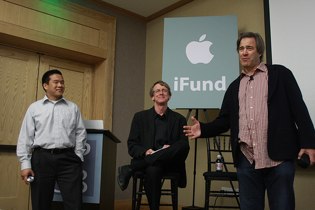 It’s a good day for ngmoco, which was just acquired by Japan’s DeNA for up to $400 million. But it’s also a good day for ngmoco’s first investor, Kleiner Perkins Caufield & Byers. In one deal they’ve completely paid off their controversial first iFund, a $100 million fund to spur iPhone app development.
It’s a good day for ngmoco, which was just acquired by Japan’s DeNA for up to $400 million. But it’s also a good day for ngmoco’s first investor, Kleiner Perkins Caufield & Byers. In one deal they’ve completely paid off their controversial first iFund, a $100 million fund to spur iPhone app development.
Kleiner invested just a little over $10 million of the $45 million that ngmoco raised in total. And since Kleiner was in first at a low valuation, they own a big chunk of the company – more than 25%. That means, with the earnout, Kleiner stands to take more than $100 million off the table in the acquisition. Even without the earnout, Kleiner will take more than $75 million in the deal.
“I believed in CEO Neil Young since I saw him bring Ultima Online to market at EA in the 90s,” said Kleiner partner and ngmoco board member Bing Gordon. “He’s been a more capable first time CEO than I imagined was possible.”
“We started the iFund when we saw a blue ocean,” said Bing, referring to the new, uncontested market when the iPhone launched, “and that ocean is now turning green.”
This deal pays off the first iFund and then some, and the other 14 investments from the fund are all gravy (one of those is Zynga).
It’s not surprising, then, that Kleiner doubled down on the iFund earlier this year, earmarking another $100 million to Apple-focused investments.
This is also a big step for the Apple ecosystem. Ngmoco is almost entirely Apple-focused, although they have recently started building for Android devices, too. Google Ventures made a recent investment in the company, at a rumored $150 million valuation, which certainly helped that process along.
Gordon also praises Apple, saying that it’s “astonishing” that an already successful Apple would deeply support a new gaming platform. Apple promoted many ngmoco titles, helping the company succeed.
Of course everyone’s happy today and popping open the champagne. But it is worth noting that, like Facebook, Apple’s ecosystem is robust enough to allow new companies to be built, reach profitability, and have a liquidity event.